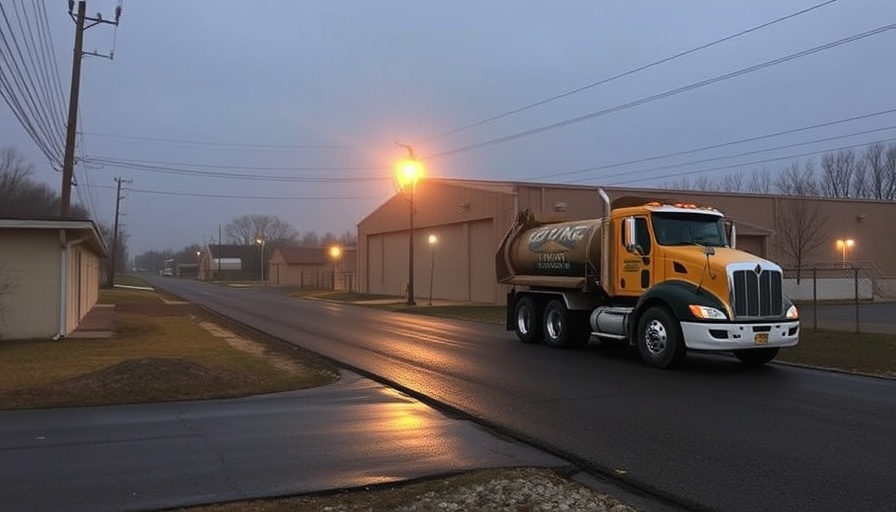
A Cautionary Tale from the Paving Industry
The world of construction is rife with challenges, yet the stakes have never been higher when ethics and integrity are compromised. Recently, a former executive from a Michigan asphalt paving company was sentenced to prison for his involvement in a bid-rigging scheme that cost taxpayers millions. This incident isn’t just another story of corporate misdeeds; it's a pressing warning for those engaged in the complexities of the construction sector.
Why Bid-Rigging Matters in Construction
Bid-rigging not only undermines fair competition, but it also has ripple effects throughout the industry. When companies engage in such practices, the quality of materials can suffer, project costs can escalate, and ultimately, the integrity of the entire construction industry is called into question. As clients of construction companies, understanding the implications of unethical behavior is crucial for making informed decisions that prioritize not just project efficiency, but also ethical integrity.
Lessons Learned: Improving Transparency and Accountability
This scandal highlights the need for increased transparency and accountability in construction processes. Companies must adopt ethical practices and ensure that competition remains fair to maintain their reputations and build trust with clients. Implementing stringent checks and balances in the bidding process can safeguard against similar occurrences and provide clients with peace of mind.
Fostering a Culture of Ethics in Construction
Today's construction companies must prioritize creating a culture of ethics over profits. By embracing ethical standards, companies can foster trust with stakeholders and promote sustainable business practices. Training employees about the consequences of unethical conduct can build a workforce that values integrity, ultimately leading the industry toward a healthier and more secure future.
Future Insights: The Role of Technology in Preventing Corruption
As the construction industry continues to evolve, technology is playing an increasingly critical role in ensuring fair bidding practices. Innovations such as blockchain offer possibilities for enhancing transparency in contractual agreements and bid processes. By utilizing these technologies, companies can not only improve their operational efficiency but also bolster their integrity, positioning themselves as the leaders of an ethical future.
The case of the Michigan asphalt paving executive serves as a critical reminder that integrity in construction is non-negotiable. As clients, you hold the power to demand ethical practices from your contractors. Encourage your partners to prioritize transparency and accountability for a healthier, more sustainable industry.
Want to learn more about the importance of ethical practices in construction? Check out our resources to find out how your company can implement best practices that ensure quality and integrity in every project.
 Add Row
Add Row  Add
Add 




 Add Row
Add Row  Add
Add 

Write A Comment